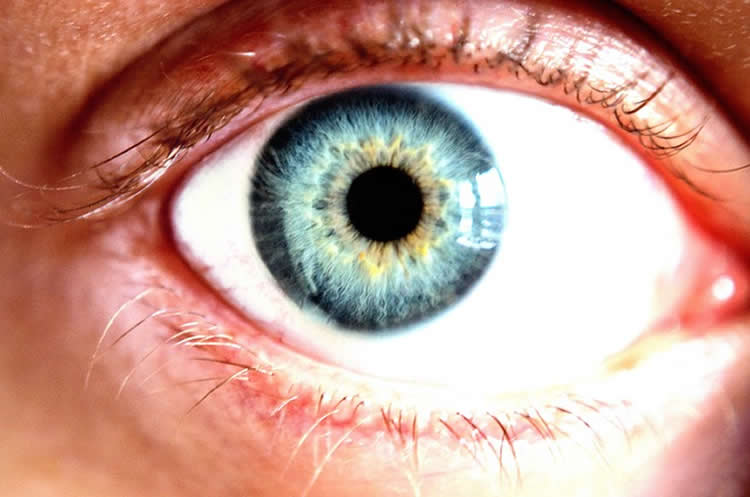Researchers at the University of Illinois at Chicago College of Medicine have found that a growth factor can regenerate damaged peripheral nerves without causing the growth of new blood vessels — making it a unique candidate to treat nerve damage in areas of the body where the proliferation of blood vessels would be a drawback.
“One example would be in the cornea, which has a requirement for dense innervation but where the formation of new blood vessels would block vision,” said Dr. Mark Rosenblatt, professor and head of ophthalmology and visual sciences at UIC and corresponding author on the study, published in the Proceedings of the National Academy of Sciences.
Peripheral nerves — those outside the brain, spinal cord and optic nerve — have the capacity to regenerate when damaged. The process is guided by numerous signaling mechanisms, including a family of growth factors called VEGFs, or vascular endothelial growth factors, which are involved in the development of blood vessels as well as nerves. Identifying the growth factors and understanding exactly how they work could lead to the development of drugs that enhance the body’s ability to repair damaged nerves.
VEGF-A is a factor that Rosenblatt and several others have studied extensively.It helps repair damaged nerves, but also induces angiogenesis – the formation of new blood vessels. Rosenblatt and colleagues wanted to better understand the role of a related growth factor, VEGF-B, in neuroregeneration and angiogenesis. They investigated its effects in the corneas of mice.
They found that mice lacking VEGF-B had a significantly impaired ability to repair damage to the corneal nerve. But if VEGF-B was delivered to the corneas of these mice, nerve regeneration improved. The new nerves restored normal sensation to the eye, and proper secretion of chemical signals to maintain the health of the cornea. Importantly, the researchers also found that treatment with VEGF-B did not induce formation of new blood vessels, or have any effect on undamaged nerves.

In experiments with normal mice able to produce VEGF-B, Rosenblatt saw that levels of the growth factor rose significantly around corneal nerves after they were damaged.
“The selective effects of VEGF-B on injured nerves — and its lack of angiogenic activity — suggest that its main function may be neuroregeneration,” Rosenblatt said.
The findings, he said, warrant further investigation of VEGF-B as a potential therapy to treat corneal nerve damage, which can be caused by dry eye, contact lenses, viruses or eye surgery, in addition to trauma. As a treatment, VEGF-B may prove superior to nerve growth factor, which has been used to treat certain eye diseases but can cause significant eye pain or the growth of new blood vessels.
Co-authors on the study are Victor Guaiquil, Zan Pan, Natalia Karagianni, Shima Fukuoka and Gemstonn Alegre of Weill Cornell Medical College in New York.
This research was supported by grants R01EY018594 and K08EY015829 from the National Eye Institute of the National Institutes of Health and by a Research to Prevent Blindness Career Development Award.
Contact:Sharon Parmet – University of Illinois at Chicago
Source: University of Illinois at Chicago press release
Image Source: The image is credited to PublicDomainPictures and is in the public domain
Original Research: Full open access research for (pdf) “VEGF-B selectively regenerates injured peripheral neurons and restores sensory and trophic functions” by Victor H. Guaiquil, Zan Pan, Natalia Karagianni, Shima Fukuoka, Gemstonn Alegre, and Mark I. Rosenblatt in PNAS. Published online November 17 2014 doi:10.1073/pnas.1407227111






